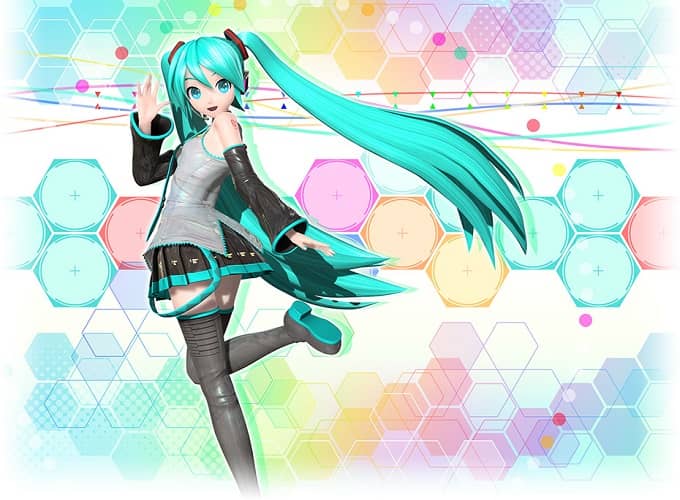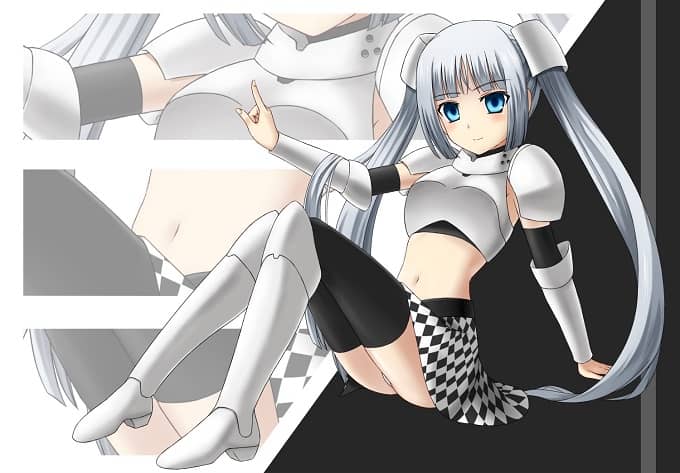Her Master’s Voice: The World of Virtual Idols, Part III
In Part I of this 3-part series, we examined how the concept of the Virtual Idol first emerged in anime during the 1980s. In Part II we looked at how things opened up as we entered the digital age, particularly with the emergence of the whole Vocaloid sub-culture, and its popular software.
It’s no surprise that after the tremendous success of Hatsune Miku and her immediate follow-ups there has been a wave of newer virtual singers hitting the scene. Some have been in the form of additional voicebanks (with their own related character avatars) in directly Vocaloid-related products, often developed by partner companies, and sometimes they arise from separate yet similar voice-synthesizers.
The most significant of these competing programs would be the UTAU shareware, with their singer characters also being known as UTAU (or UTAUloids, unofficially). There are a few factors that have increased its popularity, not the least of which is that it can be downloaded free of charge! Although it comes with one starting voice named Uta Utane (more often called by her nickname ‘Defoko’) — who sounds a bit rudimentary, in comparison to the Vocaloids — users can also create their own singer voices, and make them freely available to others.
Uta Utane/Defoko – “Here And There”
This has lead to a larger and increasingly more streamlined voice selection as the program has progressed over the years… The most famous of these UTAUloids is Kasane Teto, who has become sort of an ‘honorary member’ of the Vocaloid universe and is even now included in an official Hatsune Miku video game. She has well and truly arrived as a virtual idol, then!
Kasame Teto – “Change Me”
One other related phenomenon that has gained steady ground, on video upload sites in particular, is the range of performers known as ‘utaite.’ Despite their apparent similarity, they are in a sense the totally inverse concept to what a Vocaloid is all about. Rather than computer programs intended to mimic humans, utaite are actually human singers appearing to perform as virtual simulations!!
How far a given act will go with this format varies, but it definitely is common for them to represent themselves using anime-inspired avatars (more often using a static image than full-on animation), often electronically processing their voices to sound more artificial, and some will directly partner with established Vocaloid producers to create tracks. Whether they like that sound, or gravitate to the anime-like aesthetic, or just like the anonymity and the chance to plug into an underground scene where people have some interest… I suppose it depends on the performer what their individual motivations might be for it, as they no doubt differ greatly. In any case, the end result is another rapidly growing aspect of the sub-culture.
Unlike idols however — either virtual, or real — utaite are far more likely to write their own songs, or produce their own music tracks. And, as with the more successful Vocaloid producers, some occasionally develop full careers in the music industry, at which point they usually leave the avatars behind and become actual onstage performers… as the female singer Reol did, if you’re looking for a relatively famous example. Her music still has a very electronic sound, which made for a quite natural transition, really — but there are plenty more where she came from, if you decide you want to go searching for them!
Reol – “Hibikase”
Miss Monochrome
The transition sometimes goes in the opposite direction as well, with established singers launching their own virtual characters to expand their activities and identities into this new media realm. One of the most successful endeavors along these lines is the virtual idol Miss Monochrome, a virtual version of the well-known ‘seiyuu’ (anime voice actor) Yui Horie. Like many seiyuu, she also sings on anime soundtracks, and thus has a full-scale parallel career as a recording artist and concert performer, on top of doing her lines of anime dialogue.
Miss Monochrome first appeared on screen as part of an actual concert in 2012, but then went on to feature in her own self-titled three-season mini-episode anime series — in which she is a robot, who is also an aspiring idol singer — and she has also released a couple of albums, plus a Blu-ray compilation disc of Miss Monochome music videos!
Miss Monochrome – “Poker Face”
Whether she is ultimately a virtual character or a make-believe robot is a question which might lead us into strange metaphysical territory, depending on how you wish to define such things…! Both are make-believe beings rooted in artificial intelligence, in this case — although the music videos seem to present her as more virtual than robot (and vice versa in the anime); so, I’m not sure that there’s a clear answer. Either way, we can say that Miss Monochrome is certainly a significant and strangely colorful addition to the virtual idol landscape.
Miss Monochrome – “Monochrome” live
An additional and more recent example of a celebrity entry in the virtual idol sweepstakes is Hanikamu Ni-na. Produced and voiced by real-life idol Haruna Iikubo, best known for her involvement in the long-running superstar idol group Morning Musume, Ni-na is representative of the blossoming trend of internet-based virtual characters classified as ‘VTubers’ or ‘Virtual YouTubers.’ Just as the name suggests, they are not as strictly about music, like previous virtual idols, and often behave more like video bloggers, uploading vlog entries on any number of different topics to their YouTube accounts — but only as directed by their producers, naturally!
Ni-na – “Pa Pi Pupe”
For very obvious reasons, the actual Vtuber characters can’t produce their own content. But that continues to mirror the reality of idols on social media, who operate within very limited guidelines as well… except this is by necessity taking it to the extreme. We are still meant to buy into the fiction of it all though, as the character says and does cute or funny things to show us her idol personality — even if it is sometimes a bit exaggerated, or gently poking fun at the real-life idol experience — adding a dimension beyond what their music would provide. There is a range of them out there. Some are more focused on being singers/idols, and others are more about being online personalities.
Of course, adding to the overall variety is largely the point of having more of them show up, really. And indeed, plenty of them have shown up to do exactly that.
Kizuna AI
Without a doubt the undisputed star in this particular realm of virtual idoldom is Kizuna Ai (sometimes stylized as Kizuna AI… which makes sense, given what A.I. commonly stands for). Although it is possible to find doujin media featuring her, the main productions of Kizuna AI are done at a highly professional level, combining motion capture technology with face-recognition software such as FaceRig, and the ever-popular Miku Miku Dance (for which her team has released an official 3D model, so that hobbyists can use her more easily).
Kizuna AI – Self-introduction
Fans are directly involved with her official YouTube channel too however, particularly fans outside Japan, providing English subtitles for her videos. Her character is very self-aware and forthright about being an artificial intelligence in a virtual world; and although she has performed and officially released music, she is primarily a vlogger, covering a range of topics, both silly and serious, with a side-specialty (and an additional YouTube channel) covering video games. She is an ‘influencer’ in the most overwhelming sense possible, since — aside from being the first official VTuber, and the most successful — there have been literally thousands more appearing since her debut in late 2016, with Japanese companies investing millions (or tens of millions!) of dollars into this virtual ecosystem.
And speaking of millions, Kizuna AI also has over two million subscribers to her main YouTube channel. To say that she’s become a genuine media sensation is an understatement at this point. She is spearheading an entire movement that looks set to keep getting bigger, as we plunge further into the future…
Kizuna AI w/ Yasutaka Nakata – “AIAIAI”
All this activity has already given us an endless media multiverse to explore and discover, something only possible to a large degree due to the steady growth of the internet. Cyberspace provides a natural home for the virtual denizens who inhabit it — however illusory they ultimately may be (well, so far, at least!)
Whenever the day may come for independent artificial beings to exist as entertainers, part of the fun now is to imagine, create and absorb this constructed un/reality and just enjoy it for all it can be. And like much that is fantastical in nature — whether in the realm of science fiction, or arguably even within the vistas of idol culture in the real world, and in much of Japanese pop culture in general — to approach it with more of a sense of wonder, rather than holding onto any desire for or expectation of realism.
Perhaps it’s exactly this kind of outlook that makes Japan such a uniquely suitable place for things like this to exist and thrive. Luckily for everyone else though, it’s out there in plentiful supply just waiting to be found by anyone curious enough to look. And thanks to the same technology that popularized it, you don’t need to physically travel all that distance to start encountering it for yourself!
livetune feat. Hatsune Miku – “Redial”
John MacMaster lives in Halifax, Nova Scotia.



Never Thought Id see Reol mentioned on Blackgate…
We seek out obscure fantasy in all corners of the Earth!